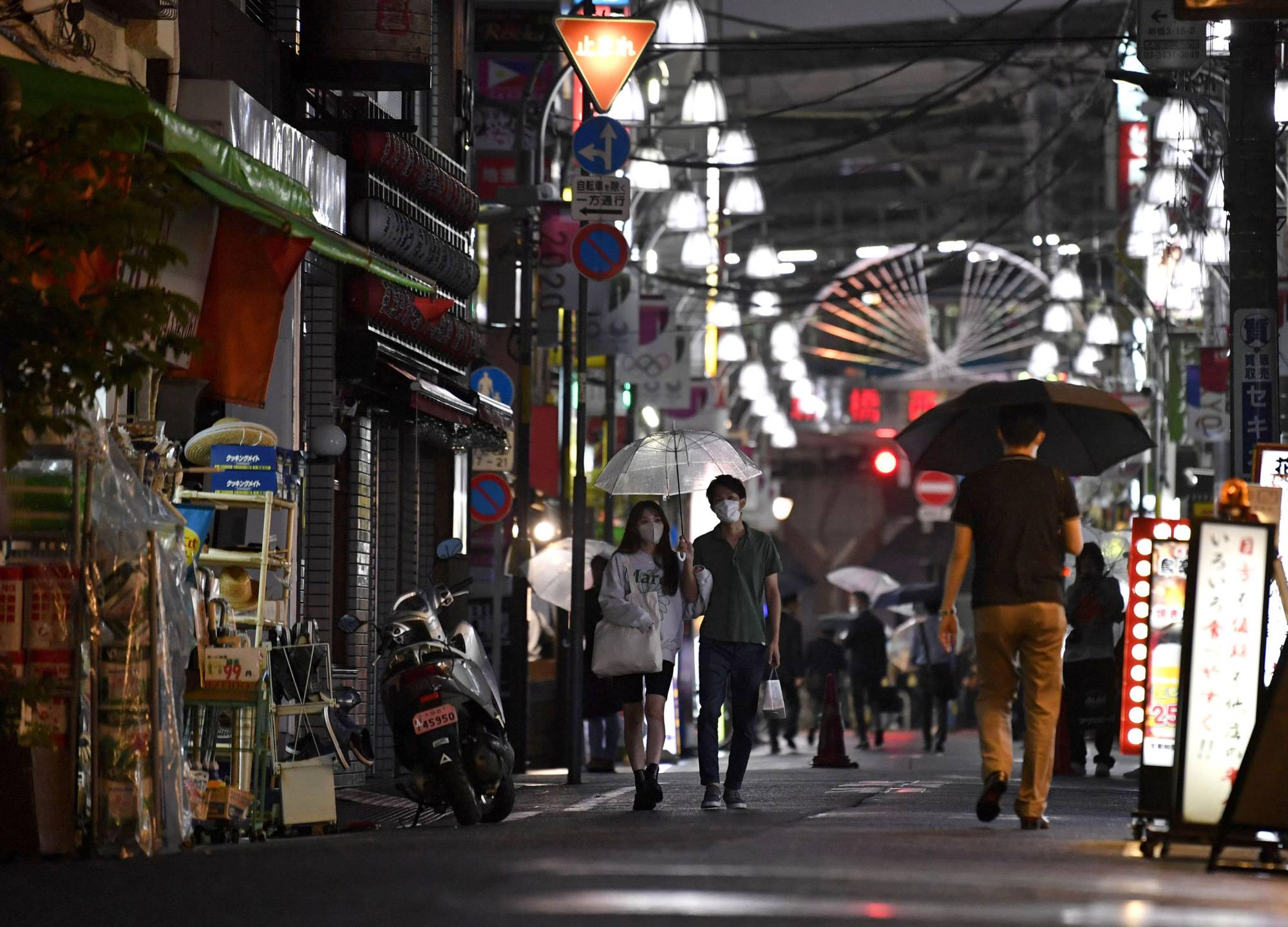Assets held by Japanese households hit a record at nearly ¥2 quadrillion ($18 trillion) at the end of September as people continued to refrain from spending due to the coronavirus pandemic and as stock prices rose, Bank of Japan data showed Monday.
The total figure of ¥1,999.8 trillion was the highest since comparable data became available in 2005 and up 5.7% from a year earlier. Cash and deposits increased 3.7% to ¥1.07 quadrillion, accounting for 53.6% of the overall balance, according to the data.
The holding of cash and deposits increased as people were asked to stay home when the COVID-19 situation was severe, making them spend less money.
Many areas in Japan including Tokyo and Osaka were under a months-long coronavirus state of emergency until the end of September that urged people to avoid nonessential outings and restaurants and bars to close earlier.
Assets held in equities rose 28.6% to ¥218 trillion as stock prices rose on hopes for a gradual recovery in major economies.
Cash and deposits held by nonfinancial firms rose 4.4% to ¥321 trillion, accounting for 25.6% of the total assets, worth ¥1.25 quadrillion, up 8.3%.
Loans extended by financial institutions to nonfinancial firms fell 0.1% to ¥351 trillion.
The quarterly report said the BOJ's holding of Japanese government bonds inched down 0.7% to ¥538 trillion, as some of them were redeemed at maturity.
The central bank, which has implemented a massive asset-buying program to keep borrowing costs low for companies and consumers, owned 44.1% of the outstanding debt issued by the state.
Overseas investors owned 13.4% of Japanese government debt after they increased their holdings by 8.1% to ¥164 trillion, according to the data.




